In our collective journey to the “better normal,” people all over the world have innovated and shown great resilience in adapting to the challenges posed by the pandemic.
One of the revolutionary changes that helped many businesses stay afloat during the lockdown period was the quick deployment and proliferation of the work from home setup. Its proponents say that it offers employees a better work-life balance, allows them to save significantly on commuting, parking, food, clothing, and other work-related expenses, not to mention the positive environmental impact gained from taking many cars off the road.
While these are valid arguments to keep the WFH arrangement going even though the public health situation has improved significantly, Jericho Go, Senior Vice President of Robinsons Land Corporation and General Manager of Robinsons Offices, presents a rather convincing case for those in favor of going back to the office.
If he sounds evangelistic about the return to onsite work, perhaps it is because he sees the benefits and advantages of such beyond his current role as the overseer of RLC’s vast portfolio of office buildings all over the country.
As he dives deeper into the details, it becomes clear that his desire to be part of the solution, to be part of nation building, underpins his philosophy.
TAKING A DIFFERENT PERSPECTIVE
Tackling first the perceived environmental impact, Go makes the argument that working from home doesn’t allow one to use resources such as electric power and water efficiently, unlike in a professionally managed office building. In support of RLC’s advocacy on sustainability, many of its modern office towers are LEED-certified structures, while others are in the process of being certified, helping reduce their carbon footprint.
“What does a Robinsons office offer? We have LED lights, we have very efficient air-conditioning systems, and we have low-flow water fixtures. We are fully committed to carbon-neutrality and zero carbon,” enthuses Go. “When we appeal to the millennials and the Gen Z's who put a premium on sustainability, we tell them that if you're really concerned about the environment, come back to the office. Why? Because in the office, everything's efficient and more sustainable.”
Moving on to the issue about time stressfully spent in traffic and the corresponding pollution caused by various modes of transport, Go points to RLC’s thrust of developing more self-contained destination estates, such as RLC’s Bridgetowne, which could be part of the solution.
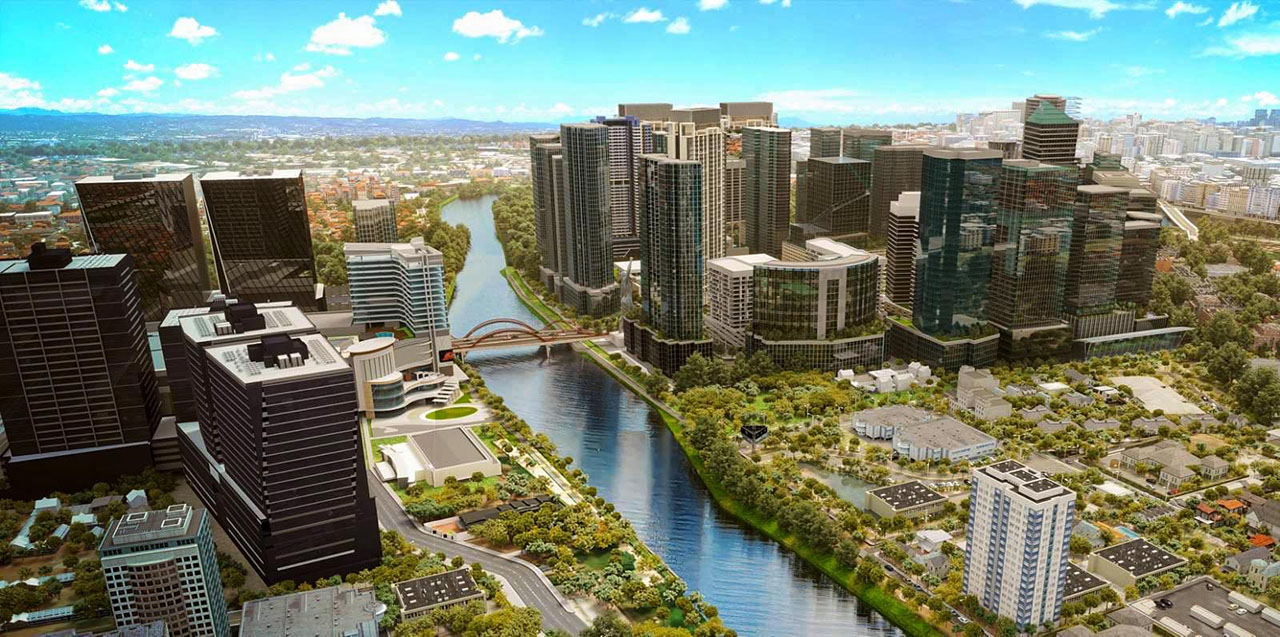
In the 30-plus hectare commercial and residential development in Pasig and Quezon City, RLC touts the “Live, Work, Play, and Inspire” lifestyle. Apart from state-of-the-art buildings such as the existing Exxa, Zeta, Tera, and Giga office towers in Bridgetowne, RLC is developing GBF Towers One and Two, and Robinsons DoubleDragon Square Towers A and B. The complex will also have the luxury mall Opus, various residential developments, a football pitch, an obstacle course, and many more amenities. “If you're able to live where you work, where you can walk, where you can bike to work, then we help solve the problem of burning fossil fuels for transportation. I think one of the ways to address that is to develop more of these destination estate complexes.”
HIDDEN COSTS
While continuing to work from home might be an attractive proposition to many employees, they must also take into consideration the costs of using home appliances such as air-conditioners beyond their original intended purpose. “If you were to use the a/c regularly for eight to 10 hours a day, how long will it last? Five years, seven years? If you use it during work hours as well, your 10 hours become 16 or 18. I'm pretty sure it's going to break down much, much earlier. Will your company reimburse you for your personal air-con’s repair? Probably not.” The same argument applies to home office equipment such as computers, printers, and their accessories and consumables.
Another important concern is having a guaranteed supply of power. The country may have a stable supply at the moment, but when most industrial sectors begin operating at their full capacity, the possibility of having power shortages grows more likely. “This is a real concern now, especially when you consider that we are also transitioning from coal and other fossil fuels to green energy sources,” says Go.
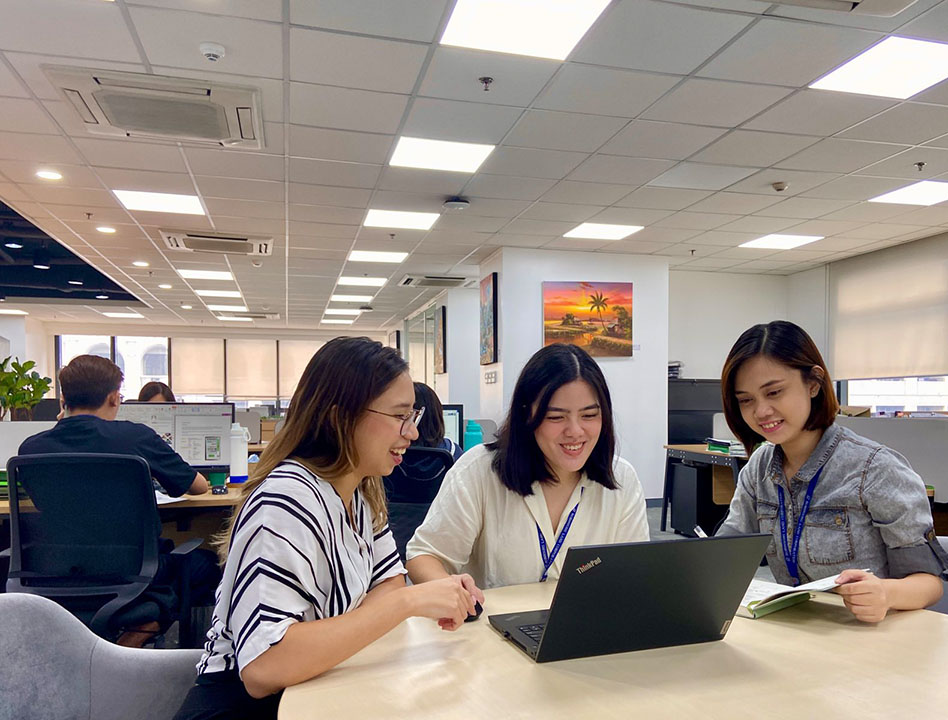
To fully satisfy their tenants’ power requirements, RLC buildings have an N+1 generator system configuration, meaning they have 100% back-up electricity in case of power outages. “We have two to three days’ worth of fuel to run at full capacity,” says Go. “When you have rotating brownouts and you’re working from home, what do you do? Go back to a physical office? But what if your company already gave up their space? That’s why I say that now is the best time for companies to get office space, when there is still a lot of supply.”
HITTING FULL STRIDE
Related to the topic of companies finally getting back to 100% operating capacity is the return of the global economy’s pre-pandemic volume (or level) of work.
During the pandemic, call centers were able to save on costs by having employees work from home. The trade-off to this was that many BPO companies could not give their clients service-level guarantees. “But now that these client companies are performing better and have more revenue, they are going to ask for these guarantees. Can you do this with your workers who are at home, with their internet connection designed for personal use? Or who don’t have adequate back-up power? Maybe not. So when the global economy goes back to pre-pandemic levels, then that’s going to be the true test.”
Being also the president and CEO of RL Commercial REIT, Robinsons Land’s real estate investment trust company boasting a sizable geographic footprint across the country, Go is keen to point out how establishing offices in the provinces can greatly benefit the capital, Metro Manila.
By making use of the “hub and spoke” model, Go sees the potential of more BPOs opening outside of Metro Manila. He shares that during the pandemic, a good number of BPO executives based in the capital returned to their home provinces with their families with them, and re-established their roots. “BPOs saw this as an opportunity. They don’t have to persuade executives to go to the provinces to open new offices anymore, they are already there! They can train and recruit people from where they are.”
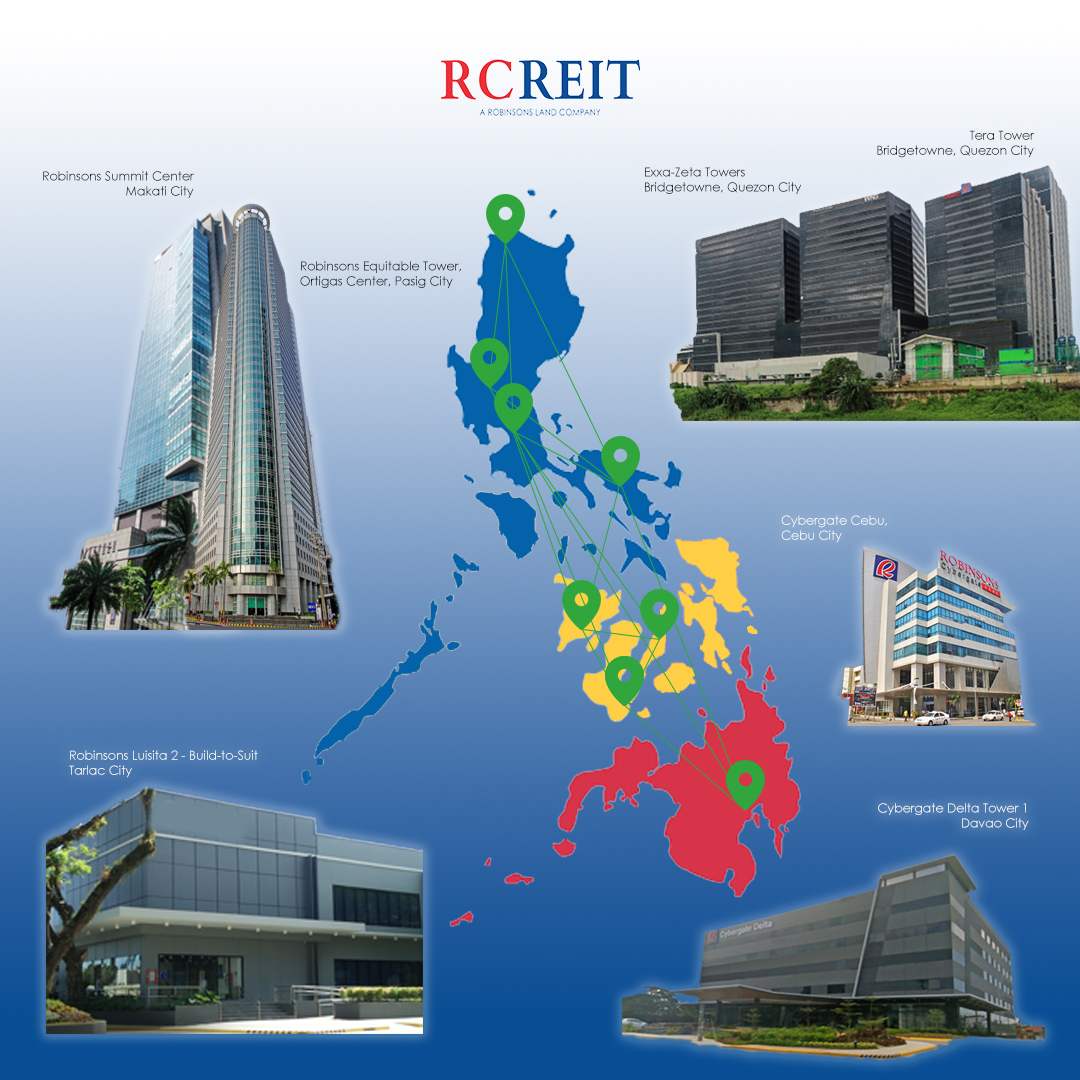
Because of this development, the real estate services firm CBRE foresees that 54% of the growth of the information technology and business process management industry in 2023 will come from the provinces, while the remaining 46% will come from Metro Manila. “The beauty of our REIT company is that we are scattered all over the Philippines. We are in Bacolod, we are in Davao, we are in Cebu, Tarlac, Naga, and many other places. We, Robinsons Offices, are in the best position because we have a footprint in all of those areas and more. That's why we continue to grow our office business. We feel that reverse migration is a good development. Those who previously left to go to Metro Manila are now going back to their provinces. You can stay where you are. Be with your family, your support group, and we will bring businesses to you, and help develop your local economy.”
Nevertheless, even with the reverse migration phenomenon, Metro Manila will still be the primary hub for IT-BPM companies and other businesses for a variety of reasons, asserts Go.
“The CBDs of Makati, Ortigas, and Fort Bonifacio will remain as the default hub for business and commerce. They possess the infrastructure, amenities, centers of excellence, and a vast array of opportunities that draw all types of professionals that continue to want to be here,” says Go. “The big multinational companies want to be able to draw from a labor pool with all types of expertise – software engineers, accounting, finance, healthcare experts – you have all that in Metro Manila. You go to the provinces, and it’s more niche. One will be good in finance or call centers, while another province is good in engineering. But in Metro Manila, you have all of that.”
Another welcome effect of reverse migration is that as the city decongests and eventually settles at the ideal population level, there will be lesser strain on the city’s public transportation system and on utilities like power and water, allowing its citizens to be better served.
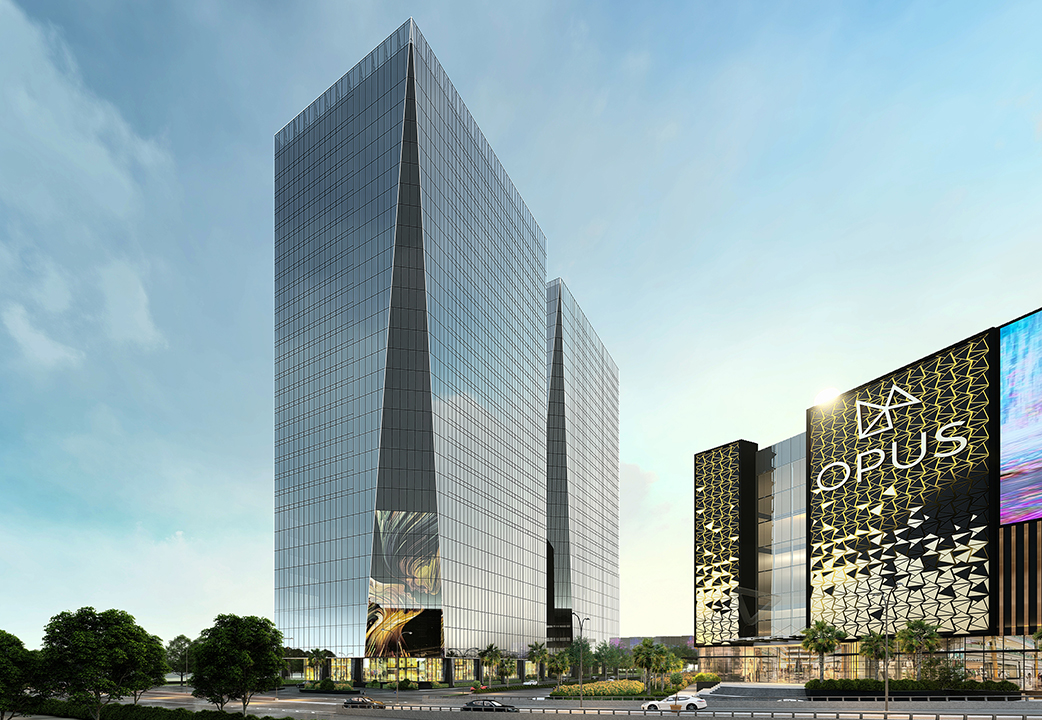
Go’s optimism for the continued growth of the BPO industry, which makes up the lion’s share (approximately 80%) of Robinsons Offices’ tenants, is supported by the IT & Business Process Association of the Philippines. The organization's 2022-2028 roadmap indicates the strong possibility of creating 1.1 million jobs in six years. This would be a steep rise in the sector's rate of employment, which created 1.3 million jobs from 2000 to 2021. “There’s another very important point to make here. In 2021, 10 million overseas Filipino workers remitted 31 billion pesos. In the same year, less than 1.5 million BPO jobs brought in almost the same amount in revenues: 29.5 billion.”
While the Board of Investments has allowed IT-BPO companies to retain a 100% work from home setup, Go says that in reality, many of these companies do not venture beyond 40%. This is primarily due to their clients’ concerns for data privacy and intellectual property rights, which cannot be guaranteed when BPOs have employees working at home.
Speaking to Robinsons Offices’ tenants, Go received feedback on the challenges of transferring knowledge from the managers to their staff who were working from home. “I've talked to executives who were getting frustrated already with video calls. They said that when they had face-to-face interactions with their people, they were able to teach them in a lesser amount of time and get their points more easily across.” He adds, “The risk of not being able to effectively communicate in a timely manner due to technological glitches may spell the difference between delivering or missing your KPIs.”
According to Go, leasing an office accounts for only about 10% of the operating costs of IT and BPO companies, with another 50 to 60% being allotted to salaries, training, and recruitment. “If you're going to save on costs by allowing employees to work from home, does 10% really account for much of your bottom line? Maybe not. So it’s best to future-proof your business, to be able to provide service-level guarantees, to be prepared for power shortages, and come back to work.”
On the side of the employees, another hidden cost that Go associates with not reporting physically to work is FOMO, or the fear of missing out. “There’s a real mental struggle for those who might be starting to feel isolated at home, especially when a greater number of people are returning to work. They’re missing out on the company of their friends and colleagues who are brainstorming in the office, or going out for lunch or after work.”
NATION BUILDING AND MORE
Through the simple act of trooping back to the office, employees can make a large contribution toward nation building, says Go. “There is a 5x multiplier effect when we choose to go to the office. When you go back to work, the transportation, retail, food service, hospitality, and healthcare industries all benefit.”
It may come as a surprise to most people that 99.58% of registered business enterprises in the country belong to the Micro, Small, and Medium Enterprises sector. Composed primarily of businesses engaged in the wholesale and retail trade, the repair of motor vehicles and motorcycles, accommodation and food, manufacturing, finance and insurance, these are some of the businesses that stand to benefit when most people return to onsite work.
“The act of going back to the office and being able to patronize certain establishments, the micro, small, and medium enterprises, creates jobs. Job creation creates further demand for products and services, so it restarts the economy. Yes, working from home might be more convenient for some of us. Yes, we probably save a little bit on this and that. But going back to the office has a much deeper social purpose. Apart from building camaraderie with your colleagues, it promotes nation building,” shares Go.
UNLIMITED POTENTIAL AND POSSIBILITIES
In October, Robinsons Land won nine major awards at the 10th PropertyGuru Awards, including a Best Office Interior Design win for Robinsons Offices’ new headquarters at the Cybergate Gamma building in Ortigas.
Opening its doors in January 2022, the fun yet functional space is an impressive showcase of what offices in the better normal can be like. “Because of our understanding and appreciation of space, physical distance, and health due to the pandemic, companies and developers are now very aware that sustainability and well-being should be front and center. That's why now they are no longer a ‘nice to have’, but something you better have for the survival of your company and projects. You must ensure that you incorporate green technology into your facility, so the workspace becomes better.”
Thanks to the work of Albert Mehrabian, a researcher on body language, we now recognize the need for actual face-to-face conversation. “He found that communication is 55% nonverbal, 38% vocal, and 7% words,” says Go. This partly explains why some communication nuances or non-verbal cues aren’t captured very well in video conferencing, while people understand each other much better when they interact in person.
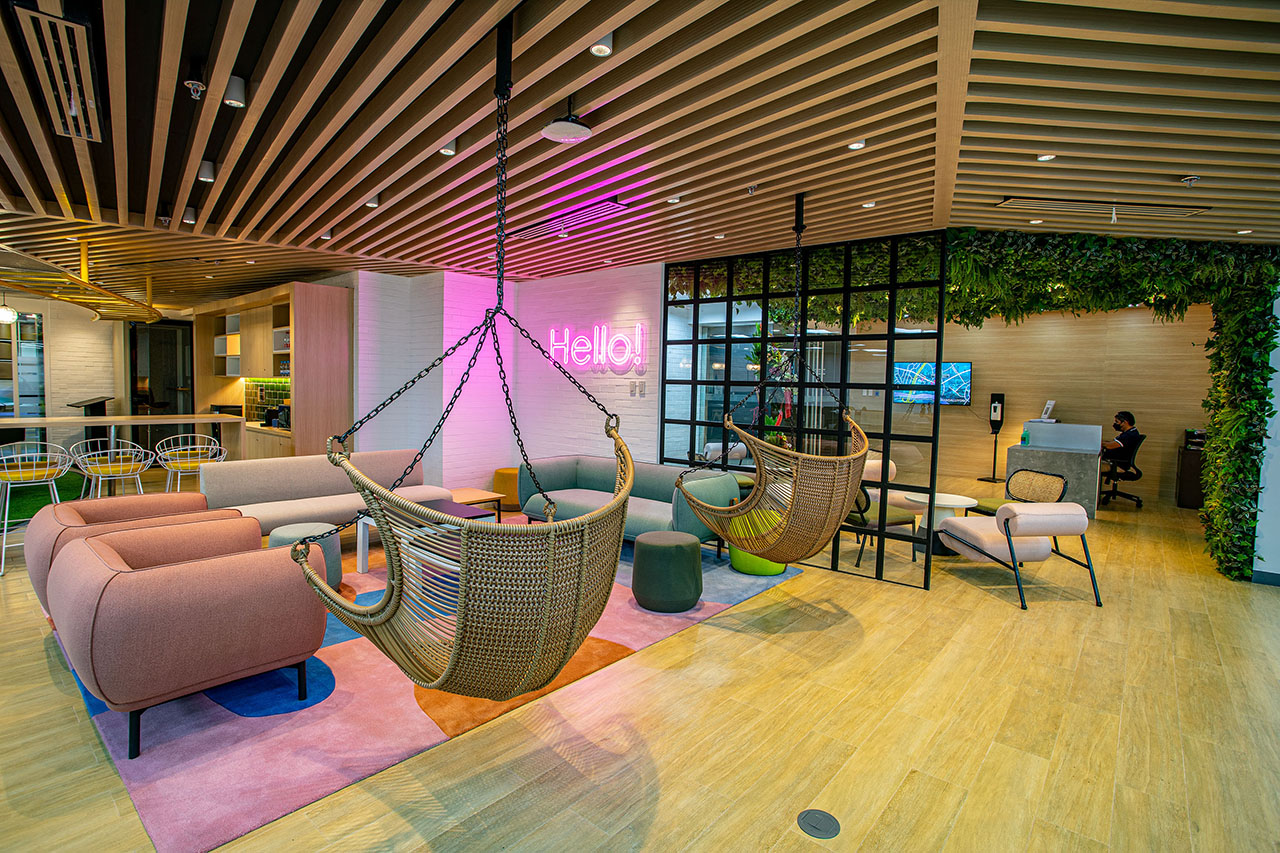
“Having a distinct culture and ways of working is what differentiates a great company from a good one,” says Go. “In the end, costumers choose to be with one company over the other because of their value proposition. How can we develop a unique corporate identity if we miss out on the very important non-verbal cues from our colleagues, mentors, and leaders?”
Part of the answer to this question is why Robinsons Offices’ spaces will feature more amenities and spaces for colleagues to collaborate than ever before. “That's the reason why people are going to go back to the office. Apart from doing their work, they’re coming to socialize, to talk, to exchange ideas. So this is how we are going to design offices moving forward.”
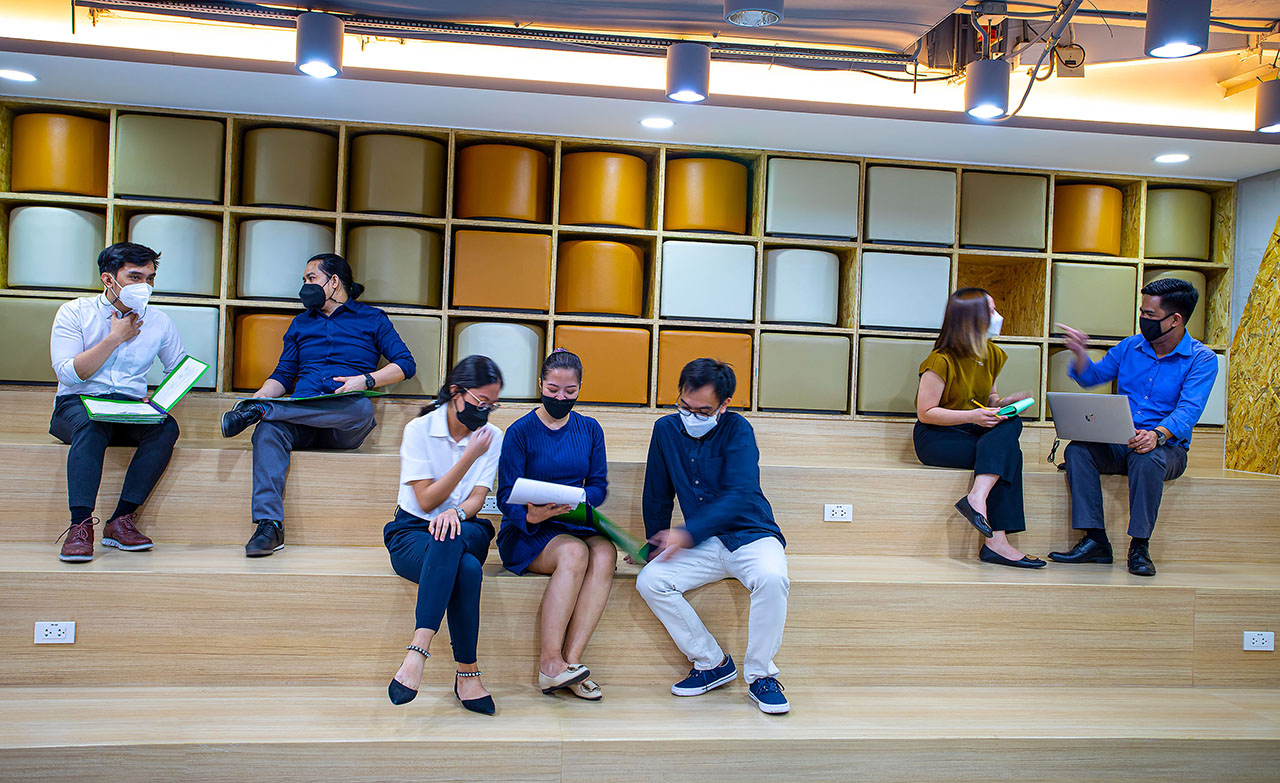
When PropertyGuru named RLC as the Best Developer of the Year, it cited how the company continued to “expand and build across all its business units despite the challenging environment created by the Covid-19 pandemic.”
Being reminded of this, Go nods and flashes a smile. “We have found our higher purpose. We want to be part of the solution, part of nation building.”
For more information on RLC's Robinsons Offices division, visit robinsonsoffices.com



